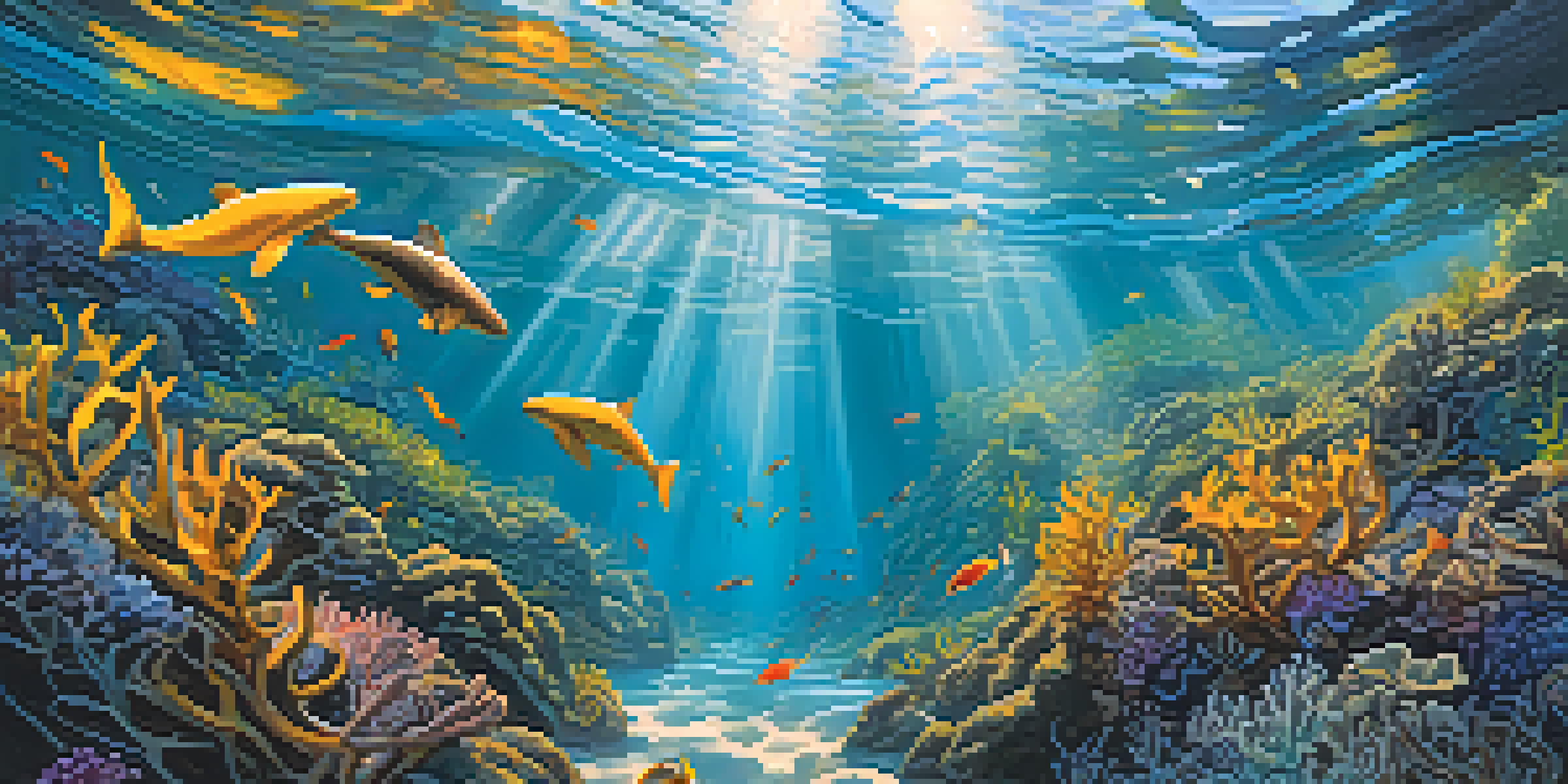Impact of Pollution on Malibu's Marine Ecosystems

Understanding Malibu's Unique Marine Ecosystems
Malibu, a picturesque coastal city in California, is home to diverse marine ecosystems. These ecosystems include kelp forests, sandy beaches, and rocky intertidal zones, each supporting a variety of marine life. From playful sea otters to vibrant sea stars, Malibu's waters are teeming with biodiversity. Understanding these ecosystems is crucial, as they play a significant role in maintaining the health of our oceans and contribute to the local economy through tourism and fishing.
Types of Pollution Affecting Malibu's Waters
Pollution comes in various forms, including plastic waste, chemical runoff, and oil spills, each posing a significant threat to marine life. Plastic debris, such as bags and bottles, can entangle or be ingested by marine animals, causing injury or death. Chemical runoff from agriculture and urban areas introduces harmful substances into the ocean, affecting water quality and harming sensitive species. Oil spills, while less common, can have devastating and long-lasting effects on the marine environment.
Malibu's Marine Ecosystems Are Diverse
Malibu's coastal waters host a variety of ecosystems, including kelp forests and sandy beaches, that support a rich array of marine life.
Impact of Plastic Pollution on Marine Life
Plastic pollution is perhaps the most visible and alarming issue facing Malibu's marine ecosystems. Sea turtles, for instance, often mistake plastic bags for jellyfish, leading to choking or internal injuries. Additionally, microplastics—tiny particles created as larger plastics break down—have infiltrated the food chain, affecting everything from plankton to larger fish. This not only endangers wildlife but also poses risks to human health as these contaminated fish make their way to our dinner plates.
Chemical Runoff and Its Consequences
Chemical runoff from urban areas and agricultural fields can severely impact water quality in Malibu's coastal waters. Rainwater can wash pesticides, fertilizers, and heavy metals into the ocean, leading to harmful algal blooms that deplete oxygen levels and produce toxins. These blooms can harm marine life, including fish, shellfish, and even humans who consume contaminated seafood. The interconnectedness of these ecosystems means that the effects of pollution can ripple through the food chain, disrupting the balance of marine life.
Pollution Threatens Marine Life
Plastic waste, chemical runoff, and oil spills pose significant dangers to the health of Marine ecosystems and the species that inhabit them.
Oil Spills: A Catastrophic Threat
While oil spills are less frequent, their impact can be catastrophic for marine ecosystems. A single spill can coat the feathers of seabirds, impairing their ability to fly and insulate, and can also affect the reproductive success of various marine species. Cleanup efforts can take years, during which time habitats may be irrevocably damaged. The aftermath of an oil spill often highlights the fragility of these ecosystems and the urgent need for prevention measures to protect them.
The Role of Local Communities in Conservation
Local communities play a crucial role in protecting Malibu's marine ecosystems from pollution. Through organized beach cleanups, residents can directly reduce plastic waste and raise awareness about the importance of keeping our oceans clean. Additionally, community education initiatives can inform people about the impacts of chemical runoff and promote sustainable practices. By fostering a sense of stewardship, communities can work together to create a healthier environment for marine life.
Community Action is Essential
Local communities play a vital role in conservation efforts, emphasizing the importance of education and organized initiatives to protect Malibu's marine environments.
Legislation and Policies for Marine Protection
Effective legislation and policies are essential for safeguarding Malibu's marine ecosystems from pollution. Local and state governments have implemented regulations aimed at reducing plastic use, managing stormwater runoff, and preventing oil spills. These policies not only protect marine life but also promote sustainable tourism and fishing practices. Continued advocacy for stronger environmental protections is vital to ensure that future generations can enjoy the beauty and bounty of Malibu's waters.
The Path Forward: Solutions and Hope
Despite the challenges posed by pollution, there is hope for Malibu's marine ecosystems. Innovative solutions, such as biodegradable alternatives to plastic and advanced filtration systems for runoff, are being developed to mitigate pollution. Community engagement and education are also key components of a successful conservation strategy. By working together, we can protect these precious ecosystems and ensure that they thrive for years to come.